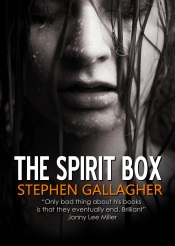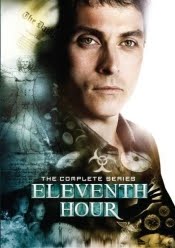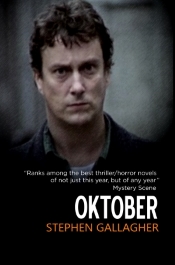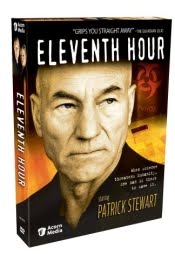You have written a considerable number of short stories, some of which have been published as collections (‘Out of His Mind’, ‘Plots and Misadventures’). What are your thoughts about the differences between writing short stories and novels? Have any of your short stories been developed further (in any media)?
Short stories are tricky, and when you get one just right it’s very satisfying. In my distant youth, enthused by the BBC adaptations, I read John Galsworthy’s sequence of Forsyte novels and I vividly remember a passage in which Young Jolyon talked about the difference between painting in oils and watercolours. The gist was that in oils you build up from the canvas, and along the way you can try things out and make revisions and cover your mistakes. Whereas with a watercolour you lay your brush on the paper, and if the stroke isn’t right, then the whole thing’s ruined. That’s how I see short stories – they work or they don’t; there’s no margin for error.
I’ve adapted some of my short stories for radio – By the River, Fontainbleau, The Horn and Life Line. They were all for the Fear on Four slot and they keep showing up on BBC4 Extra. A lot of my radio stuff got wiped, one of the producers told me. Off-air copies get traded between collectors but the broadcast masters are gone.
The notion of a TV anthology show seems to raise its head every two or three years. Producers love the idea of them, but commissioners and schedulers are much cooler. You can more or less guarantee that when an anthology show does get commissioned, it’ll be first in line to be pre-empted for a sports fixture or a special event. The viewing figures get driven down, and then the figures are used as proof that anthology shows aren’t popular.
I’ve seen you at a couple of conferences recently and you also talk to writers’ groups. What do you personally get out of this, and what do you think aspiring writers might gain from your input?
Well, it’s a great opportunity to talk about how hard it all is and to scare off the competition! But seriously, if anyone can get something useful out of anything I’ve got to say, that’s great. It’s not like I’m making it easier for anyone.
There’s a vanity element to it as well. I spend most of my days sitting in a room at a keyboard. Tell me there’s a place with a bar and a willing audience and a bunch of friends to catch up with afterwards, and you’re pretty much describing the main social pleasure that this job has to offer.
What are your
feelings about the indies and what purpose do you think they serve,
bearing in mind that their circulation is often quite small?
Independent publishing has always played an enormous role in both the science fiction and fantasy genres. In early science fiction there was the Gnome Press; in fantasy and horror there was Arkham House. They were mould-breakers in their way, and they were an important bridge between the pulps and the mainstream book market. Some of today’s indies continue that tradition. Then you’ve got all the small-circulation magazines and anthologies that offer new writers a place to get their voices heard and to sharpen up their craft. If they didn’t exist, someone would have to invent them.
Interview conducted by Trevor Denyer for Midnight Street.
Thursday 11 August 2016
Subscribe to:
Post Comments (Atom)





































No comments:
Post a Comment